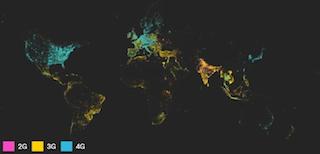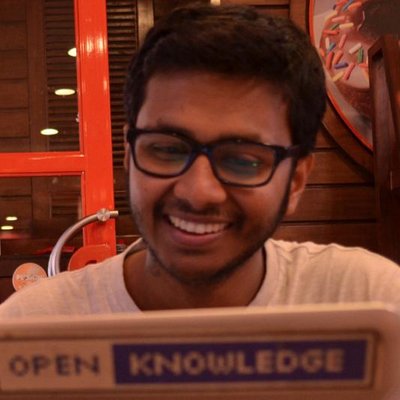See the following -
Social Media Holds Big Potential For Public Health
Another example of the growing convergence between our public and private, our digital and our "actual" selves: NPR reports that targeting via Facebook population groups at risk for diseases such as HIV has an impact and can increase awareness and testing. Read More »
- Login to post comments
Social Media's Role In The Evolution Of FrontlineSMS
It's Social Media Week this week, and in recognition of this and our seventh anniversary next month, we'd like to reflect on the role that social media has played in the history and development of FrontlineSMS. Read More »
- Login to post comments
Social Media: An Asset to Saving Millions
The amount of women and children that die hourly from preventable incidences can be compared to the amount of persons that died during the recent Dana clash that claimed 154 lives in Lagos in June. Read More »
- Login to post comments
Social Medicine 2.0—Can You Use Crowdsourcing to Give Your Medical Device a Leg Up?
 Online crowdsourcing communities are a game changer. These platforms allow anyone to appeal to the entire connected world for support or participation. They get many of us to participate—Kickstarter processed just shy of $500 million dollars in 2014. Most interesting, at least to me, are platforms for crowdsourcing information. These make up the next generation of online forums, ranging from chat forums to open source hardware development...
Online crowdsourcing communities are a game changer. These platforms allow anyone to appeal to the entire connected world for support or participation. They get many of us to participate—Kickstarter processed just shy of $500 million dollars in 2014. Most interesting, at least to me, are platforms for crowdsourcing information. These make up the next generation of online forums, ranging from chat forums to open source hardware development...
- Login to post comments
Take Back Your Log-In: It’s Time To Move Away From Facebook Connect And Toward OpenID
It might seem easier to outsource your website’s log-in to Facebook. But do you really want to hand over all your user data to another company?...
- Login to post comments
Tech & The Cheetah
Some regions of Kenya have better cell phone reception than the heart of San Francisco’s financial district. This is no exaggeration. One can easily make a call or text from the Maasai Mara National Reserve. It’s changed the country’s economy, society in both rural and urban areas, and launched millions of voices onto Twitter and Facebook. Read More »
- Login to post comments
Tech Giants Back Initiative For Funding Crucial Open Source Projects
The nonprofit Linux Foundation has announced the Core Infrastructure Initiative, a multi-million dollar project aimed to fund open source projects critical for the global information infrastructure, and a dozen of big tech companies have joined it and will be providing the funds. Since the discovery of the OpenSSL Heartbleed bug some two weeks ago, the one positive thing brought forth by it is a better understanding of the limitations of open source software development.
- Login to post comments
Technology Is Destroying The Music Industry, Which Is Great For The Next Taylor Swift
...So how will technology kill the music industry then? Well, it will simply destroy the record label...
- Login to post comments
Testing A $35 Firefox OS Phone—How Bad Could It Be?
...While you're sitting there using your Internet-enabled device to read about some other Internet-enabled device, it's easy to forget that the majority of people doesn't have any access to the Internet at all. The "World Wide" Web is actually not that worldwide—only about one-third of the population is online...
- Login to post comments
The Connected Consumer—She Loves Her iPad, and She'll Be Able to Connect for Health
The adoption and enchantment with these devices can enable people to not only ‘shop’ for health services, but to receive these services in real-time at a distance. Traditionally “telehealth” has been thought to be delivered in a B2B sense, between health providers — say urban centered medical experts consulting remotely with physicians in the hinterlands.
- Login to post comments
The Day We Fought Back
[...] The groups that organized this action have long been pushing hard for real surveillance reform. But we knew that the time was ripe—that the Snowden leaks, unrelenting media pressure, grassroots activism, and even pressure from within Congress—were creating a once-in-a-lifetime opportunity to give the public—worldwide—the chance to voice its opposition to mass spying. [...] Read More »
- Login to post comments
The Four Big Reasons Why 4 Billion People Aren't Online
 It's around 46 years since consumers first started to use online services, and 23 years since the NCSA Mosaic browser started to popularise the World-Wide Web. But more than half the world's population - around 4.1 billion people - are still not using the Internet, according to Facebook's 56-page State of Connectivity 2015 report. The authors note that "Over the past 10 years, connectivity increased by approximately 200 to 300 million people per year."...
It's around 46 years since consumers first started to use online services, and 23 years since the NCSA Mosaic browser started to popularise the World-Wide Web. But more than half the world's population - around 4.1 billion people - are still not using the Internet, according to Facebook's 56-page State of Connectivity 2015 report. The authors note that "Over the past 10 years, connectivity increased by approximately 200 to 300 million people per year."...
- Login to post comments
The Golden Age Of Open Source Has Arrived
In the new economy, it’s not the code that matters — it’s how you use it to connect people to things they need. From 3D printers to Docker, open-source-based innovation is fueling some of the hottest digital capabilities of our time. Finally — the golden of source arrived. Companies 20 years ago built monopolies on licensed software; today, free and –source code fertilizes economic growth. The way to win at tech is no longer to own code, but to serve customers — and service source at its roots...
- Login to post comments
The Health Care Website Is Not Like Facebook
When questioning executives of the contractor behind the problem-plagued health care website during a House hearing Thursday, Rep. Steve Scalise brought up a popular, user-friendly site for comparison. Read More »
- Login to post comments
The Largest Wikipedia Gathering in South Asia Kicks Off
 Wiki Conference India 2016 (WCI), the largest gathering of contributors to Wikipedia and its sister projects in South Asia, will be held during August 5-7 this year in Chandigarh, India. The first iteration of this event was five years ago in 2011. The event is focused around South Asian language Wikipedias and Wikimedia projects. Hundreds of participants, including over 100 scholarship holders from India, Pakistan, Nepal, Bangladesh and Sri Lanka, will participate in this three-day event...
Wiki Conference India 2016 (WCI), the largest gathering of contributors to Wikipedia and its sister projects in South Asia, will be held during August 5-7 this year in Chandigarh, India. The first iteration of this event was five years ago in 2011. The event is focused around South Asian language Wikipedias and Wikimedia projects. Hundreds of participants, including over 100 scholarship holders from India, Pakistan, Nepal, Bangladesh and Sri Lanka, will participate in this three-day event...
- Login to post comments